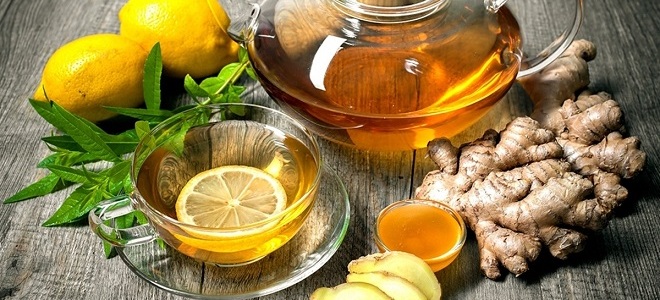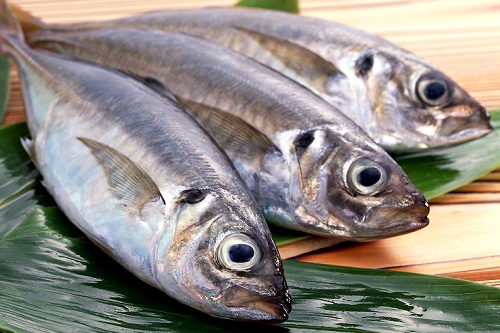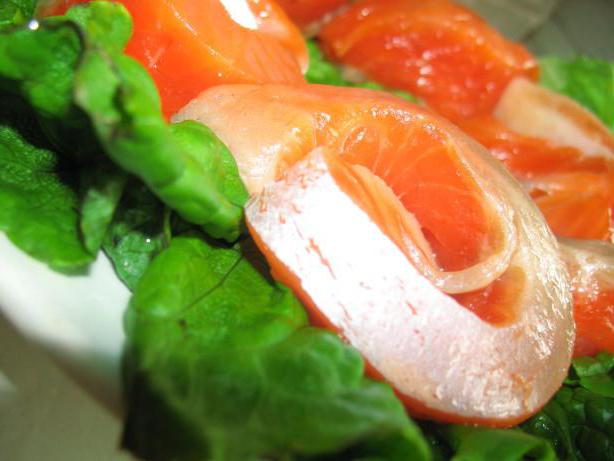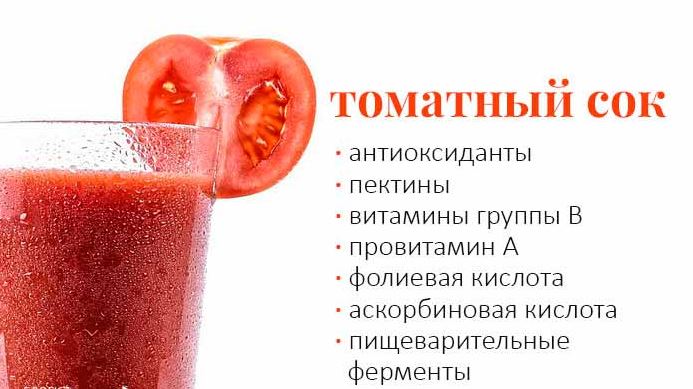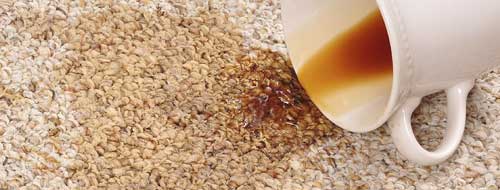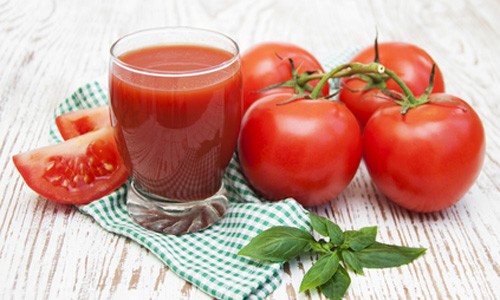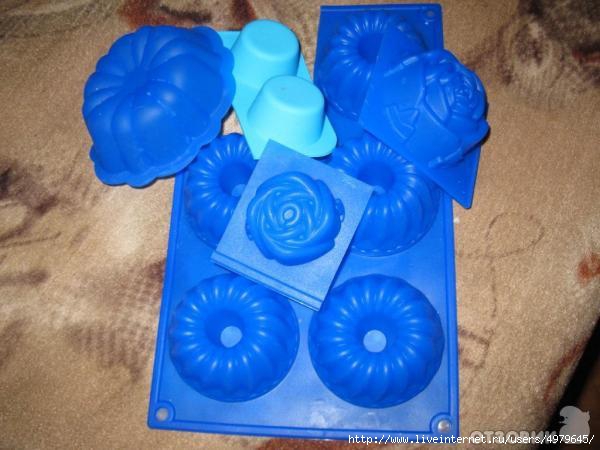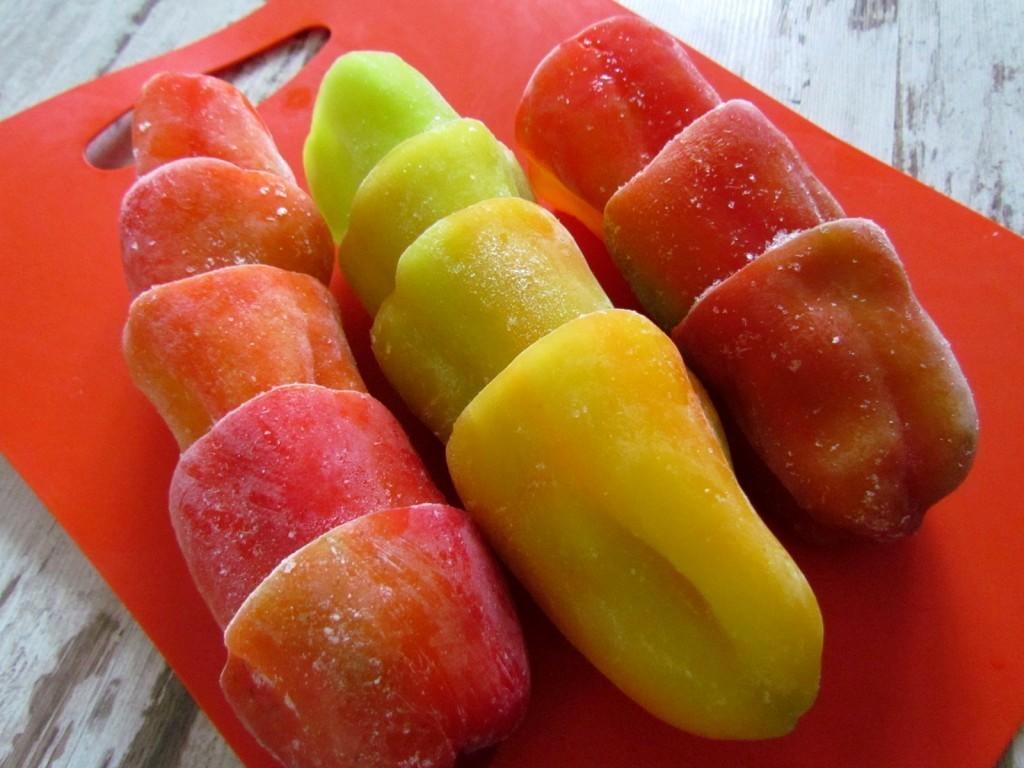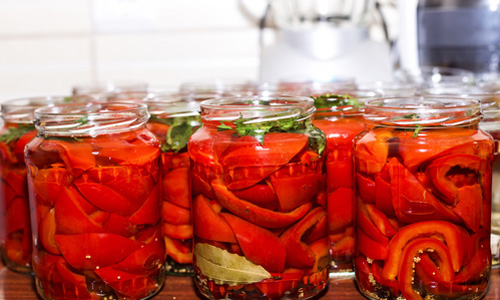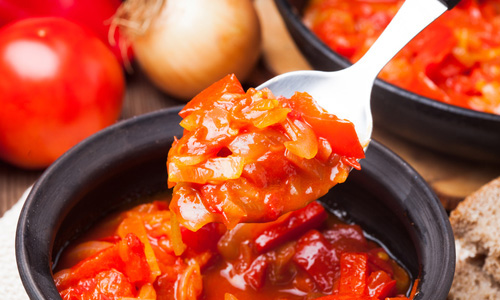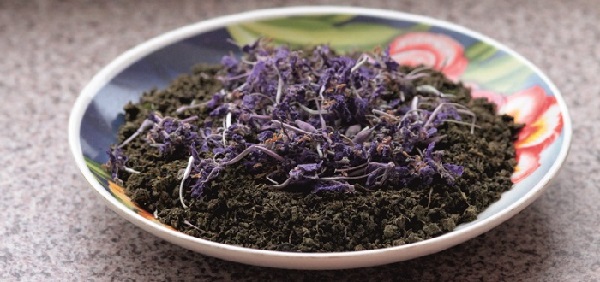Provencal herbs. Provencal herbs composition and use in cooking
 The mixture of fragrant herbs got its name thanks to Provence - the French region located between the Alps and the Cote d'Azur. But (French herbs) are known far beyond France - Mediterranean, Italian and other European cuisines make extensive use of this generous gift of nature.
The mixture of fragrant herbs got its name thanks to Provence - the French region located between the Alps and the Cote d'Azur. But (French herbs) are known far beyond France - Mediterranean, Italian and other European cuisines make extensive use of this generous gift of nature.
Composition of Provencal herbs :
- rosemary
- thyme
- sage
- basil
- peppermint
- savory garden
- oregano (oregano)
- marjoram
The proportion of seasoning, and sometimes composition of provence herbs do not obey strict rules.
Culinary application
Perfect in the first and second courses. Light vegetable soups and sauces, the taste of meat and poultry will be revealed in a completely new way if you add a pinch of Provence herbs. With the addition of these herbs, you can bake or steam fish. This mixture of spices also goes well with vegetables: baking in the oven or on the grill is perhaps the most delicate way to cook vegetables, which allows you to do without excess fat. they will completely reveal the taste of tomatoes, eggplant, zucchini, sweet pepper, onions ... Potatoes baked with this mixture of aromatic and fragrant herbs are wonderful. Unsweetened pastries from yeast dough, incomparable pizza, pies - the aroma of Provencal meadows is appropriate everywhere.
Using a mixture of Provencal herbs is simple - just sprinkle the dish in the process, about 10 minutes before being ready. Before adding to salads, you can warm the herbs a little in a dry pan to enhance the aroma of the spice. With this mixture, even your usual, favorite dishes will sparkle with new colors of taste! go well with garlic and a touch of lemon zest. If you decide to add spicy herbs to the marinade - remember that they will give the flavor to the product in 2-3 hours, and finally it will open when cooked. What you should not do is add this mixture of herbs to the breading: since frying oil has a very high temperature, they will most likely burn.
The benefits of provence herbs
Not only improve the taste of dishes: due to the content of essential oils, tannins, resins and organic acids, vitamins and minerals, they have a beneficial effect on the human body.
Basil enhances immunity, it is often used for colds and various types of respiratory diseases. Few people know that basil is considered a real thunderstorm for bacteria that cause tooth decay and plaque.
The "gold" of our country has various shades, including green. With full right they can be considered the richest flora of Russia. And one of the most important gifts of native nature is its healing herbs.
Perhaps, Russian women hear not only “Baikal herbs”, “herbs of Western Siberia” or “mountain herbs of Altai”, but also herbs growing in Europe - primarily “Provencal herbs”. They compete with our domestic both in the kitchen and on the dressing table.
The south-east of France, the mountainous terrain of the Mediterranean, generously bathed in sunshine, is fertile for growing herbs. Savory, oregano, rosemary, thyme and basil form the basis of the bouquet with the Herbes de Provence brand label. Lavender - a fragrant symbol of Provence, sage, fennel, caraway seeds, coriander and tarragon often harmoniously complement the composition.
Let's try to compare the characters of the traditional vegetation of the southeast of France and our vast Motherland.
Russian herbs VS Herbes de Provence
"Provencal herbs" is primarily a famous brand. The traditional collection has an almost unchanged composition and fairly clear proportions. Recipes, verified over the centuries, combinations that do not change dramatically. In part, the relatively narrow geographical boundaries of the region can also serve as the reason for such pedantry.
It’s not possible to make out a complete list of Russian medicinal herbs by blade of grass - the territories of their growth are too vast and differ in climate.
Altai foothills with amazing herbs; silver-green taiga landscape; Crimea is a unique region with many endemic plants; Baikal is the purest, untouched, reserved vegetation.
More often mentioned in the gastronomic aspect. Culinary recipes of Mediterranean cuisine are unthinkable without provence seasonings. Moreover, not all herbs that make up the "Provencal mixture" have sufficient weight from a medical point of view.
Russian herbs are primarily valued for their medicinal properties. In ancient times, they were used for healing from all kinds of ailments. And, of course, to rejuvenate and maintain natural beauty. A lot of examples of the use of herbs for medical purposes are contained in Russian folklore.
Although some herbs are extremely successful specimens that have made a “career” in both cooking and cosmetology, for example, all of us beloved parsley is an excellent skin whitening agent.
More valued in cosmetology for its aromatic properties. Most often used to create spicy aroma bouquets in perfumery, cosmetics, soap making. For example, for tourists - guests of Provence the option is available - to create your own perfume based on local plants under the guidance of professional perfumers.
The aromas of the herbs of the north are not always as bright and varied as their counterparts grown under the hot sun. However, the main value is hidden inside. For example, clover increases the ability of the skin to neutralize the effects of harmful factors. The primrose tones, refreshes, gives a healthy radiance. Meadowsweet contains salicylic acid, which has a powerful anti-inflammatory effect. Shlemnik Baikalsky has antioxidant properties, promotes the penetration of other active components into the skin.
However, Provence and I have a lot in common. Herbs that feel great both in France and in Russia - for example, in the Crimea - lavender, in the Caucasus - savory, verbena is common in the European part of Russia and the Urals. And the same parsley, although not included in the classic composition of the "Provencal mixture", is a very popular culinary and cosmetic product in Provence. The soul of the Provence bouquet - thyme - is better known in Russia as thyme or Bogorodskaya grass, because in Russia it was placed under the icons of the Mother of God on the day of the Assumption of the Virgin.
* It is important to understand that the manufacturer of cosmetic products monitors all stages of growth, collection and processing of plant materials. This rule is also observed in France. That is why herbs, grown, harvested and dried according to all canons of herbal medicine can be considered a real Provencal bouquet. The guarantee of authenticity and quality is the Label Rouge mark.
Provence is a historical region of southeastern France. In the east - the Alps, in the south - the Mediterranean Sea. The oldest French territory is famous for its huge purple lavender plantations and a variety of herbs. It is these spicy-fragrant plants that have become the hallmark of Provence.
In a broad sense, Provence herbs are a mixture of aromatic herbs collected in the south of France, in the province of Provence. In the manufacture of seasoning uses a wide variety of plants. Seasoning may contain a mixture of Provencal herbs, not necessarily prepared from the same composition. In any case, it will be fragrant and used in the constant diet of the local population. Indeed, a huge number of spices grown on fertile French soil, allows you to experiment. Such a mixture does not have the exact composition and proportions, and each time it may be different. At the same time, the ratio of herbs is chosen according to one's own taste and in accordance with the conceived dish. Traditionally, herbs are used fresh and dried.
Mixture of Provencal herbs
Seasoning brand "Provencal herbs" has developed in a different way, which made it famous throughout the world. A mixture of spices appeared recently, in the 70s of the 20th century. It is compiled by French chefs, recognized as the best professionals in the world. Packaged spices collected all the aromas of the flowering south of France. The composition of the seasoning and the observance of the proportions of herbs are constant and strictly verified. An exceptional feature of the mixture is that it is suitable for any dishes. That is why a mixture of Provencal herbs is used in ordinary, everyday home cooking, and in the most expensive restaurants in the world. Undoubtedly, centuries-old experience in studying the composition of spicy plants came in handy. Back in the 17th century, specially selected herbs grew in the "bouquet" Provencal gardens, but not in the garden, medical or fruit gardens. Knowledge of the properties of these plants and useful to French chefs. Today, France’s most famous seasoning is valued for its simplicity, original flavor, the charm of nature and, of course, grace.
The basis of seasoning is basil, rosemary and thyme. The expanded composition includes:
- Basil
- Rosemary
- Thyme
- Peppermint
- Oregano
- Marjoram
- Dill
- Sage
- Parsley
- Lavender

Infographics: TOP 10 Provencal herbs
An exceptionally skillful combination of herbs created a composition with a unique aroma and many virtues, culinary and healing. A high content of active components (volatile essential oils, tannins, bitterness) stimulate the sense of smell and taste, promote digestion and increase appetite.
The ratio of the proportions of the mixture of Provencal herbs helps each spice to reveal itself and complement the aroma and taste of another. This information is known, it lies on the surface and is understandable. But as it turned out, the seasoning composition of Provencal herbs is not accidental, and it's not just the proportions and aromas. There is a certain mystery in it that cannot be called a mere coincidence.
The mystery of the seasoning "Provencal herbs"
It's all about the taste. According to the Vedas — the ancient sacred texts of mankind (translated from Sanskrit as “perfect and complete knowledge), by eating, we not only support the body, but also nourish the senses. In order to be completely healthy and to experience complete satisfaction from life, to be physically, emotionally and intellectually well, our food must be balanced.
For this, 6 taste components must be present in the food: sweet, bitter, salty, spicy, sour, astringent. The modern person in everyday life uses only three tastes: salty, sour and sweet.
Well-known scientist Dr. Brooks is convinced that the absence of the other three tastes leads to the dissatisfaction of the “taste of life." He suggests considering the concept of six spices and balancing nutrition. The doctor gives spices a key role in the matter and believes: this will help people to influence their health, weight and relieve many bad habits. One of these spices is the seasoning of Provencal herbs. Surprisingly, the mixture of Provencal herbs contains all six of the tastes necessary for human health. This makes it unique and universal.
Can this fact be called a mere coincidence with the ancient Vedic knowledge and research of a modern scholar? What turns an ordinary spice mix into a thoughtful, proportionate and versatile seasoning? The answer to this question is the mystery of Provencal herbs, the solution to which is hidden in the herbs themselves.
What is included in the herbs of Provence?
Typically, these are thyme, fennel seeds, rosemary, tarragon, oregano, chervil, bay leaf, lemon peel, sage, lavender flowers and other herbs. Another thing is a mixture called Provencal herbs.

Basil
- Place of birth: India, Iran
- Age: over 1000 years old
- Part Used: Fresh or Dried Leaves
- Energy: spicy, warming. It opens the mind and heart, energizes love and devotion
- Association: India. After the lotus - the most sacred plant. Translated - “a fragrance worthy of kings”
- Taste and aroma: specific, fairly fresh, mustard with notes of pepper. The aroma is strong, a little camphor
- Application in cooking: soups (especially vegetable), an essential component of most sauces and salad dressings, meat and fish dishes, omelettes, flavoring drinks, an essential ingredient in delicious dishes (tortoise soup and oxtail soup)
- Benefit: antipyretic for influenza, strengthens nerves, improves memory, clarifies the mind, cleanses the blood. It has antibacterial and anti-inflammatory effects
Rosemary
- Place of birth: western mediterranean
- Age: several thousand years
- Used part: thin leaves, similar to needles, fresh and dry flowers
- Energy: warming, drying
- Association: the goddess Venus, born of sea foam. Ros marinus - in translation "sea foam"
- Taste and aroma: burning, bitter, spicy. The aroma is strong, fresh, pleasant, with forest and mint notes. The main tone is pure, resinous
- Cooking use: a very strong spice. The best use is dishes with lamb, pork, fat bird (ducks, geese), fish
- Benefits: treats the liver, gall bladder, rheumatism, asthma, colds, burns and skin
Thyme, aka thyme
- Place of birth: temperate tropical countries
- Age: time immemorial
- Used part: leaves on thin stems
- Energy: warming and moisturizing
- Association: incense. Translated from the Old Slavonic language - "incense"
- Taste and aroma: spicy, bitter - spicy, refined. The aroma is enhanced saturated
- Cooking applications: drinks, balms, meat and fish dishes, seafood, salads, preservation
- Benefit: warming and drying plant for any disorders, antidepressant, natural antibiotic, potent tonic
Peppermint
- Place of birth: england
- Age: XYII century, appeared due to the crossing of wild species
- Used part: leaves that are collected during the formation of buds and the beginning of flowering
- Energy: sharp, cooling
- Association: chill (popular name - “chloodok”), the ancient Greek nymph Minthe, which turned into a mint plant
- Taste and aroma: burning, tart. The aroma is pleasant, spicy, fresh
- Use in cooking: it is applied everywhere without restrictions for giving piquancy and aromatization of dishes
- Benefit: natural antiseptic, painkiller, treats the gastrointestinal tract, nerves, respiratory tract, cleanses the blood
Oregano or oregano
- Place of birth: england
- Age: 2000 years old
- Used part: leaves and dry buds
- Energy: warming Association: beautiful mountains (oregano - “mountain decoration”)
- Taste and aroma: burning. The aroma is delicate, pleasantly spicy.
- Cooking use: pastes, liver and meat filling, home-made sausage, sauces, salads, soups, drinks, preservation
- Benefit: regulates digestion and motility, removes toxins
Marjoram
- Place of birth: north africa
- Age: 2000 years old
- Used part: dried leaves, dried flower buds
- Energy: warming Association: oregano
- Taste and aroma: spicy, bitter. The aroma is sweet, spicy, a little camphor
- Cooking use: meat, poultry, fish, soups, salads, fried potatoes
- Benefit: heals nerves, gynecological diseases, promotes digestion, improves appetite, tones
Sage
- Place of birth: Southern Europe and the Mediterranean
- Age: several hundred years
- Used part: fresh and dry leaves of the top of the plant along with buds
- Energy: sharp, astringent
- Association: health (sage - in Latin - “grass of health”, “sacred grass”)
- Taste and aroma: strong, bitter, spicy. The aroma is spicy, persistent, tart, withstands prolonged heat treatment
- Cooking applications: poultry, fish, salads, vegetable dishes, mushrooms, sausages, cheeses
- Benefit: gives strength, prolongs youth, treats bronchi, lungs, asthma, radiculitis, gastrointestinal tract diseases. Antimicrobial, hemostatic, restorative
Lavender
- Place of Birth: Mediterranean, North Africa
- Age: several thousand years
- Used part: flowers collected at the beginning of flowering
- Energy: slightly cooling, neutral
- Association: good sleep, aroma, admiration Taste and aroma: astringent, bitter, spicy. The aroma is rich, rich, floral-sweet, strong
- Cooking use: salads, sauces, meat, fish, mushrooms, drinks, teas, pastries
- Benefit: antibiotic, antiseptic, analgesic. Heals 167 diseases
Where to add provencal herbs?
Provencal herbs belong to universal seasonings. But especially suitable for fatty dishes. Fresh diet foods without salt add flavor and aroma. The mixture of herbs was widely used in the preparation of soups, sauces and salads. Spices are indispensable for ground meat and fish dishes, when cooking roast and various fillings.
Provencal herbs are used to make butter, both butter and any vegetable. Especially go well with olive oil.

Olive Oil
What is the secret of a very strong aroma and unusual taste of oil with Provencal herbs? All herbs included in the seasoning have a pronounced aroma, which provides essential substances. Vegetable oils dissolve essential oils best of all and ensure the preservation of spices for a long time. Ready-made oil is used in marinades for meat, poultry, cooking baked vegetables, salads, fish, and legumes. Fragrant oil can be purchased at the store, but you can cook it yourself.
In the latter case, you need to observe the proportions of Provencal herbs:
- oregano, rosemary, lavender - 1 part;
- basil, thyme, marjoram, mint, sage - 2 parts.
This oil gives the dish an incomparable aroma and spicy spicy taste.
A visiting card of French cuisine is spices, cheese, sauces and wine. Professional chefs of France will help you get acquainted with some dishes of this cuisine: Tyler Florence, Nigel Lawson, Guy Fier.
Potatoes with provence herbs
A special taste of the potato is given to a creamy sauce with garlic and Provencal herbs. The dish is cooked for 1 hour, belongs to the category of easy cooking.
Ingredients: (4-6 servings)
- Fat cream - 1.5 cups
- Bay leaf - 3pcs
- Chopped Garlic - 2 cloves
- Unsalted butter
- Peeled and sliced \u200b\u200bpotatoes - 900 g
- Grated Parmesan - 1/2 cup
- Mixture of Provencal herbs
Cooking:
- Prepare the oven to 205С.
- Preheat cream with bay leaves, garlic and provencal herbs
- Grease a baking dish with butter
- Pour hot cream into a large bowl with prepared potatoes and mix gently
- Sprinkle potatoes with cream of parmesan. Add a little salt and stir
- Pour a little cream into the bottom of the mold and lay the potatoes in an even layer
- Pour the remaining cream over the potatoes
- Sprinkle with remaining Parmesan
- Cover the mold with foil, opening one corner for steam to escape
- Bake potato gratin 40 min.
Provencal Chicken
Ingredients:
- 1 chicken with excess fat cut off and wing tips removed
- Salt, ground black pepper
- Shallots - 1 head, sliced \u200b\u200bin rings
- One lemon zest, sliced \u200b\u200bin large strips
- Olive oil - 3 tbsp. l
- Honey - 1 tbsp
- Provencal herbs
For the sauce:
- Water - 3 tbsp. l
- Lemon juice - 1 tablespoon
- Olive oil - 1 tbsp. l
- Honey - 1 tbsp. l
- Shredded shallots - 2 tbsp. l
- Fresh thyme leaves - 2 tsp.
- 1/4 tsp salt
- Ground black pepper
Cooking:
- Salt and pepper the chicken inside.
- Insert shallots, half Provencal herbs and lemon zest inside the chicken
- Grease chicken with olive oil
- Combine the remaining butter and honey in a small bowl.
- Spread chicken with this mixture.
- Salt and pepper the bird to taste
- Put the chicken in the roasting pan (breast-down) and bake for 40 minutes until golden brown
- Pour the chicken juice out and put in the oven again for 20 minutes
- Allow the bird to cool for 10 minutes before slicing.
Provencal herbs sauce for chicken
- Drain the liquid from chicken roasting into a clean saucepan. Remove fat
- Add lemon juice, honey, olive oil, shallots, the remaining half of Provence herbs, salt and pepper
- Chicken and serve with sauce
- Garnish baked potatoes.
Provence Herb Buns
Ingredients:
- 600 g wheat flour
- 350 g of warm water
- 1 tsp dry yeast
- 20 g sugar
- 8 tbsp olive oil
- 3 tbsp Provencal herbs
Cooking:
- Dissolve salt and sugar in warm water. Sift flour and mix with yeast
- In the flour, make a hole, pour in olive oil and a solution of salt and sugar. Knead the dough. It should be soft, but tight
- Shaped the dough into a bowl and greased with olive oil
- Cover with a towel and leave for 2 hours
- Roll out the dough 0.5 cm thick. Grease the whole layer with olive oil
- Sprinkle with Provencal herbs
- Roll the dough into a tight roll. Blade the edges and seam of the dough. Divide the dough into buns, plucking the edges
- Put on a baking sheet covered with parchment paper
- Make an incision in the middle of the buns. Leave blanks for 40 minutes. Bake buns in a preheated oven for 20 minutes
- French buns with Provencal herbs are tender, aromatic and tasty.
The benefits of provence herbs
The composition of the seasoning includes a sufficient number of herbs with a rich vitamin composition and a set of useful substances. Taken together, medicinal herbs only enhance their beneficial qualities and saturate food with all the tastes necessary for a person to have health and emotional well-being.
List of references:
- James Brooks Ayurvedic secrets of longevity and absolute health.
- E Izmailov. The basics of the teachings of the Vedas.
- V. Pokhlebkin. Big Encyclopedia of Culinary Arts, M. 2008
- V. Lad, D. Frawley "Herbs and spices."
- B. Miller, L. Miller. Aromatherapy
- Grischuk N.A. The world of spices and spices. Reference manual.
- Medicinal properties of herbs. Culinary recipes. Kharkov, 1991
Food plays an important role not only for health, but also for the soul, so food should be fun, balanced and tasty. And seasonings for dishes are most directly related to improving the taste and aroma of food. For the first time, a combination of fragrant plants was used by French cooks. For cooking, they began to use aromatic herbs grown in the province of Provence, hence the name - Provencal herbs. I hope that you will be interested to know what is included in the composition, what are the proportions of herbs and for what dishes this seasoning is simply necessary.
Gourmets claim that for the full range of tastes, six shades of taste should be present: sweet, bitter, salty, spicy, sour and astringent.
Seasoning, which I will talk about, is characterized by the fact that it has all the necessary components, it is this fact that expands the range of applications. Seasoning enriches the taste of many dishes, goes well with all types of meat, fish, beef, pork, lamb. It is added to roast, minced meat, fried potatoes, used for baking various vegetables and meat products.
Provencal herbs are used as an additive in meat and vegetable salads, put in sauces, sprinkled with omelets, scrambled eggs. Seasoning perfectly improves the taste of the first dishes, it is added during the preparation of soups and broths, put in savory pastries, for example, when kneading dough for making bread or sprinkled on pizza before baking.
What is included in Provencal herbs and proportions
For the first time, Provence herbs were heard at the end of the 20th century as a result of culinary experiments by French chefs. Mandatory components of this seasoning are basil, marjoram and rosemary, the rest can be added at will and preference. Let's consider in more detail which herbs are part of:
- Basil originated from India and Iran, grown for more than a thousand years, the mixture uses leaves. gives a small pleasant pungency and of course saturates the dishes with wonderful feelings - love and devotion, as a medicine helps with colds, cleanses the blood and mind;
- Marjoram originated on the lands of North Africa two thousand years ago, in the recipes used leaves and dried buds. The dishes are given a spicy aroma with notes of camphor, as a medicine is used for indigestion;
- Rosemary appeared in the Mediterranean several thousand years ago. For seasoning, leaves are used that give a bitter taste, perfectly complement meat and poultry dishes. The healing properties are that rosemary helps in the treatment of liver, asthma, colds;

- Thyme or appeared on tropical lands since time immemorial, leaflets are used in the mixture. They give an acute-bitter taste to dishes, as a medicine is used for nervous disorders;
- Fennel - The closest relative of the well-known dill, otherwise it is called a pharmacy dill. It has a sweet smell, reminiscent of the smell of anise. Beneficial effect on the work of the gastrointestinal tract;
- Tarragon or tarragon increases appetite, has an unusual smell and taste, has a sharp, slightly spicy aroma. Came to us from the countries of Asia Minor;
- Oregano or oreganoabout came from England more than 2 thousand years ago. For the body has a beneficial effect on the digestive system and helps to eliminate toxins;
- Bay foxt It has a spicy taste and aroma. Read more about bay leaf.
- Lemon zest - This is the outer painted layer of the fruit, has a bitter-sweet fruity aroma, a slightly sugary taste;
- Sage came from southern Europe and the Mediterranean more than two hundred years ago. It perfectly complements dishes of fish and vegetables, is used as a healing agent for pulmonary insufficiency, and is an excellent anti-aging agent;
- Peppermint originated in England around the 17th century as a result of the pollination of wild herbs. For seasoning, leaves are used, collected in the budding phase, gives the dishes sharpness and astringency. As helps with disorders of the gastrointestinal tract.
- Dill came to us from Central Asia and North Africa, has a calming effect and has a beneficial effect on the digestive tract. gives the dishes a fresh, warm, spicy aroma .;
- Lavender flowers have a slightly cooling effect and add piquancy to sauces, salads, meat and fish dishes. This plant appeared in the Mediterranean more than 2 thousand years ago. Lavender has a whole range of useful qualities and it helps to cure 167 diseases, a good antibiotic and antiseptic.
Medicinal properties and contraindications
Each herb individually has a large number of healing properties, the properties gathered together only increase and complement.
Some experts do not think of cooking without seasonings and spices. As mentioned above, Provencal herbs originated from the distant province of Provence, however, in our country, you can easily grow these plants. The mixture of these plants perfectly complements dishes, and also improves the emotional state.
I would like to emphasize that Provencal herbs contain a large number of vitamins and minerals. It contains - mineral salts, aromatic oils, organic acids, enzymes, tannins, resins. Regular use has a healing effect:
- Improving the digestive system;
- Weight loss;
- Soothing effect.
Provencal herbs are an environmentally friendly product and taste excellent in all dishes (sauce, salads, cold and hot).
The spice does not have any particular contraindications, but nevertheless, the person using the mixture for cooking should know the composition and, if there is some incompatibility with the plants that make up the composition, it should be avoided. Experts recommend using seasoning with caution in people with hypertension and thrombophlebitis. For women who are in an interesting position and breastfeeding, you should also not use Provencal herbs.
It is worth noting that excessive use of this seasoning can lead to irritation of the gastric and intestinal mucosa. Follow the norm and enjoy the harmony of taste of the prepared dishes.

Provencal herbs - proportions for cooking at home
Let's immediately note that the name of the seasoning was formed as a result of the work of French culinary specialists, but this does not mean at all that it will be problematic to prepare this mixture. All of the above herbs, which are part of the composition, can be grown independently and accordingly prepare the seasoning is not difficult. Let's take a closer look at home cooking technology:
- Prepare the herbs dry according to the composition;
- Grind the substrate;
- Add components in equal parts. If you prefer some taste, it is possible to slightly increase the amount, about 2 times;
- The prepared mixture should be poured into a dry container, covered with a lid and left in storage for about six months.
Provencal herbs perfectly retain their healing qualities even when dry, and storage for 6 months gives the seasoning sophistication and unique taste.
The advantage of the seasoning is that you yourself can create a mixture that is perfect for you, because it is not necessary to add all the plants, some can be excluded. Do not forget one thing - the basis is three herbs - rosemary, marjoram and thyme.
There are no certain proportions, it is enough to add all the herbs in equal amounts, you can observe the proportions in spoons or in grams, slightly increasing the rate of your favorite components.
Let’s share a little tip for using seasoning: before adding to dishes, Provence herbs should be slightly warmed up in a pan, this will enhance the taste and emphasize sophistication.
Where to add provencal herbs - recipes
To date, recipes with Provencal herbs are gaining an army of fans.
Imagine a seasoned olive oil recipe:
- take one part of the crushed dry parts of oregano, rosemary and lavender flowers;
- two parts of basil, thyme, marjoram, peppermint and sage;
- mix with 1 liter of olive oil.
The resulting product will perfectly complement your dishes and give a sharp - spicy shade.
The following recipe was borrowed from famous chefs of French cuisine. Introducing the recipe for cooking potatoes with Provencal herbs, the advantage of such a dish is the incomparable taste and speed of cooking.
- Cream - 300 milliliters;
- Lavrushka - three leaves;
- Two cloves of garlic;
- Butter - 50 grams;
- Peeled potatoes, sliced \u200b\u200bin circles - 1 kilogram;
- Half a glass of grated Parmesan;
- Seasoning and salt to taste.
Heat cream, small garlic, bay leaves and herbs, grease a baking tray with oil. Put the potatoes, pour the warmed mixture, mix, sprinkle with cheese, cover with foil and bake in the oven at a temperature of 205 degrees. It will take about 40 minutes to cook.

Consider the recipe for chicken with Provencal herbs, this will require:
- Chicken carcass, wings and fatty layers should be cut off;
- Salt, black pepper;
- Shallot, cut into rings;
- Sliced \u200b\u200blemon peel;
- Three tablespoons of olive oil;
- A tablespoon of honey;
- Seasoning to taste.
Chicken meat is salted, pepper, add herbs and zest, greased with oil. Anoint the carcass with honey and oil and bake for 40 minutes until a crust appears. Periodically, the chicken should be watered with juice from the fryer.
The recipe for making rolls, for this you should prepare the following ingredients:
- Flour - 600 grams;
- Warm water - 350 milliliters;
- A teaspoon of dried yeast;
- Sugar - 20 grams;
- Olive oil - 8 table. spoons;
- Three tablespoons of provencal herbs and a pinch of salt.
Dissolve salt, yeast and sugar in warm water, add flour, passed through a sieve. Pour in oil and knead the dough, it should turn out elastic. Lubricate the surface of the dough with oil, let stand for 3 hours. Roll out the dough with a layer of 0.5 centimeters, grease with oil, sprinkle with seasoning, roll the roll. Divide the roll into buns, put on a baking sheet and bake in the oven for 40 minutes. Enjoy your meal!
Dear readers, today we learned how extensive the range of applications of this wonderful and most importantly useful seasoning is. We hope that the tips will be useful, listen to your body, rejoice and care. Be healthy!
Often in the description of many recipes you can find the phrase "add provencal herbs to taste." Many people ask the question - what is Provence herbs, and what is included in these spices? Provencal herbs today have become so popular that on the shelves of shops you can find several bags of this seasoning from different manufacturers at once, with recipes and recommendations for use in your favorite dishes.
Composition of Provencal herbs
Provencal herbs are a specially selected mixture of aromatic spicy herbs, which includes herbs such as rosemary, thyme, sage, basil, savory, marjoram, oregano and peppermint. Their combination is simply perfect in aromas and gustatory qualities to many familiar dishes, filling them with a new taste and unsurpassed aroma. Provence herbs are called so, from the name of the French province of Provence, where spicy herbs that are part of the Provence mixture have long been grown and mixed.

Useful properties of provence herbs
Even fatty meat will become much tastier and healthier if seasoned with Provencal herbs, since the properties of this spice are a large number of healthy substances that will be a great addition to your favorite dishes. Provencal herbs include active substances such as organic resins, enzymes, vitamins and essential oils, as well as tannins and mineral components. They help increase appetite and improve digestion, and for those who are on a salt-free diet, Provence herbs are the first assistant in the kitchen in preparing various dishes. Dishes without salt are quite fresh, and it is a mixture of Provencal herbs that can fill them with new tastes and aromas.
How to use Provencal herbs in cooking
Provencal herbs are an absolutely universal seasoning, and their use in cooking will make all your dishes delicious and fragrant. Its spicy-spicy taste is ideally combined with meat dishes, fish dishes and delicious poultry dishes, as well as vegetables and cereals.
Provencal herbs are a spice thanks to which your favorite dishes of Italian, French and even Ukrainian cuisine will become real culinary masterpieces, because this mixture of herbs goes well with garlic, onions and other traditional spices of the national cuisines of the world. Perfectly provencal herbs complement the taste of poultry and fish cakes. And if you rub the usual chicken breasts with garlic and Provencal herbs, olive oil and bake in the oven, you can get a French dish called Provencal chicken.
The taste of long-loved and familiar dishes will sparkle in a new way, if you add a pinch of Provence herbs in the cooking process. For example, your favorite stewed cabbage will become a real culinary masterpiece if you add a little Provence herbs 20 minutes before the end of cooking.
Provencal herbs can also be prepared independently if you buy all the herbs individually and grind it in a mill with added salt. Store Provencal herbs in a cool, dry place in a tightly closed container.

